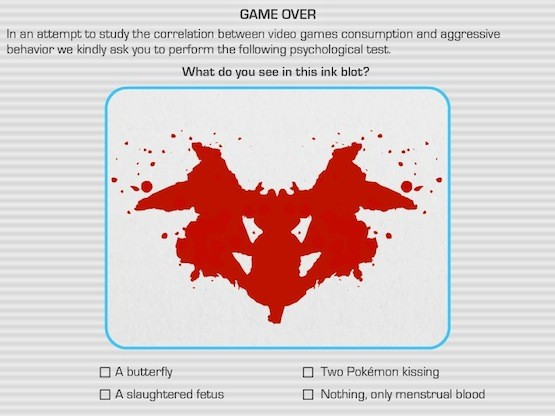The Best Amendment Explores Gun Violence From Both Sides
Since the Sandy Hook massacre, the discussion around gun laws and game violence has reached fever pitch. The Best Amendment explores the issue from both sides.

After 26 teachers and children were shot dead in Connecticut last year, the debate around American gun laws has never been hotter. In Washington, for the first time since the Bush administation, the US government pushed for a ban on assault weapons though ultimately, it didn't go through.
Elsewhere in the country, legislation is being drafted to limit the capcacity of gun magazines - Democratic California Senator Dianne Fernstein has authored a proposal to limit guns to being loaded with ten rounds at a time, whereas in February, Colorado narrowly passed a measure to cap gun mags at 15 bullets.
People are also looking at videogames; though often a punch bag in controversial debates, the attention being given to games this time around feels like more than just lazy finger-pointing. After it was discovered that the Sandy Hook perpetrator was a fan of Call of Duty, United States Vice-President Joe Biden summoned game industry reps to The White House to canvass their opinions.
Since then, President Obama has launched a research intiative into the possible effects of videogames on young people: "We don't benefit from not knowing," he says.
The Best Amendment
I don't use my gun anymore, I refuse. A couple of years ago I'd go out on semi-regular shooting trips with my dad, slugging a few clay pigeons with my 12-bore then hitting the pub for a drink. But not now. The level of gun crime in the US and rest of the world has reached such a point that, even in the safest, most legal set of circumstances, I don't feel comfortable holding a weapon.
It's a personal kind of protest - so too is The Best Amendment.
A recently launched flash game, which you can buy for however much you want on MolleIndustria.org, The Best Amendment is a bright, concise, funny even, rebuttal to the pro-gun camp. Developed solely by Molle's Paolo Pedercini, it sees you play as a cartoonish little Klansman on an isometric plain, shooting other Klansmen in order to claim points.
But here's the rub. When you start the game, it's you versus one guy. Kill him and the next level it's versus two, then three, then four and so on, and every new baddie is a "ghost" of yourself from the previous level. If you ran around the edge of the arena spraying bullets into the centre, that extra enemy will do the exact same in the next level.
Cultural commentary
And that's the game's first line of cultural commentary. While you're playing, The Best Amendment flashes up that infamous quote from NRA twit Wayne LaPierre, "The only thing that can stop a bad guy with a gun is a good guy with a gun." But that's not true. The only thing that CREATES bad guys with guns IS good guys with guns; in The Best Amendment, it's the proliferation of guns and gun usage which breeds more guns, more violence.
Just as complacent guns laws leads to this kind of one-upmanship, The Best Amendment shows how people with guns beget people with guns. The more you shoot the more shooters you create; the only way to stop that is to not shoot at all.
But it's not quite so clear cut, because the other way to keep winning in The Best Amendment is watch where you shoot. The game encourages you to "think in four dimensions" i.e. bear in mind that in the next level, what you do is going to come back on you, so if you've shot bullets everywhere, you're now going to have to dodge them.
If you're a little patient, you can learn to take the bad guys down with one, maybe two well-placed rounds, sparing yourself trouble later on. You can be a responsible gun user.
If you don't treat your gun carelessly you can still use it and get by ok. As he explained in an interview with The Verge, Pedercini's politics are a little greyer than The Best Amendment might originally suggest:
"We have to go beyond simple denial," he says. "There has to be some self-reflection regarding how games fetishize shooting and violence as primary ways to interact with the (virtual) world. Games may not push people to commit mass murder but they sure teach gamers to love guns."
Rorschach
So, Pedercini is setting his own house on fire some. The Best Amendment suggests, pretty overtly that guns are bad, but also that they can be less dangerous so long as they're treated with respect.
External factors, like games, can have a bearing on a society's behaviour around guns; if you let your knowledge of videogames bleed into your playing of The Best Amendment, and charge in pistols blazing, the game gets a lot more difficult and bloody. Keep your head and be exacting, and it's much more secure.
And then there's the Rorschach test. Every now and then, at the end of the round, The Best Amendment brings up a blood coloured Rorschach shape and asks you what you see. It's an attempt, apparently, to study the correlation between videogames and violent behaviour; the money made from The Best Amendment will go towards funding research, and discussions between both sides of the gun debate.

Pedercini is definitely not ignoring the suggestions that games might play a role in cultivating violence, but nor is he abdicating the right to bear arms, either. The character you play as is still a Klansman, and there's dopey, redneck-y bluegrass music on the soundtrack. There's parody and satire and a lot of criticism of the gun-lovin' US in The Best Amendment; at the same time, it takes some potshots at videogames, too.
© Copyright IBTimes 2025. All rights reserved.






















